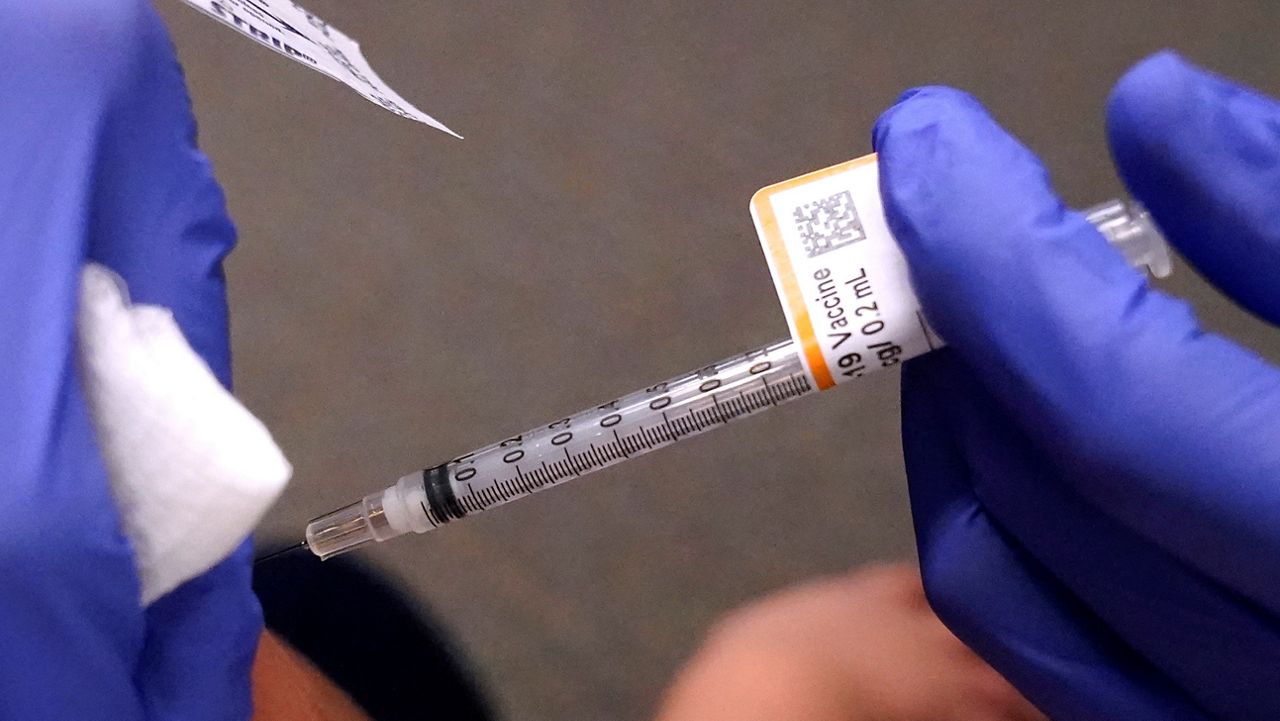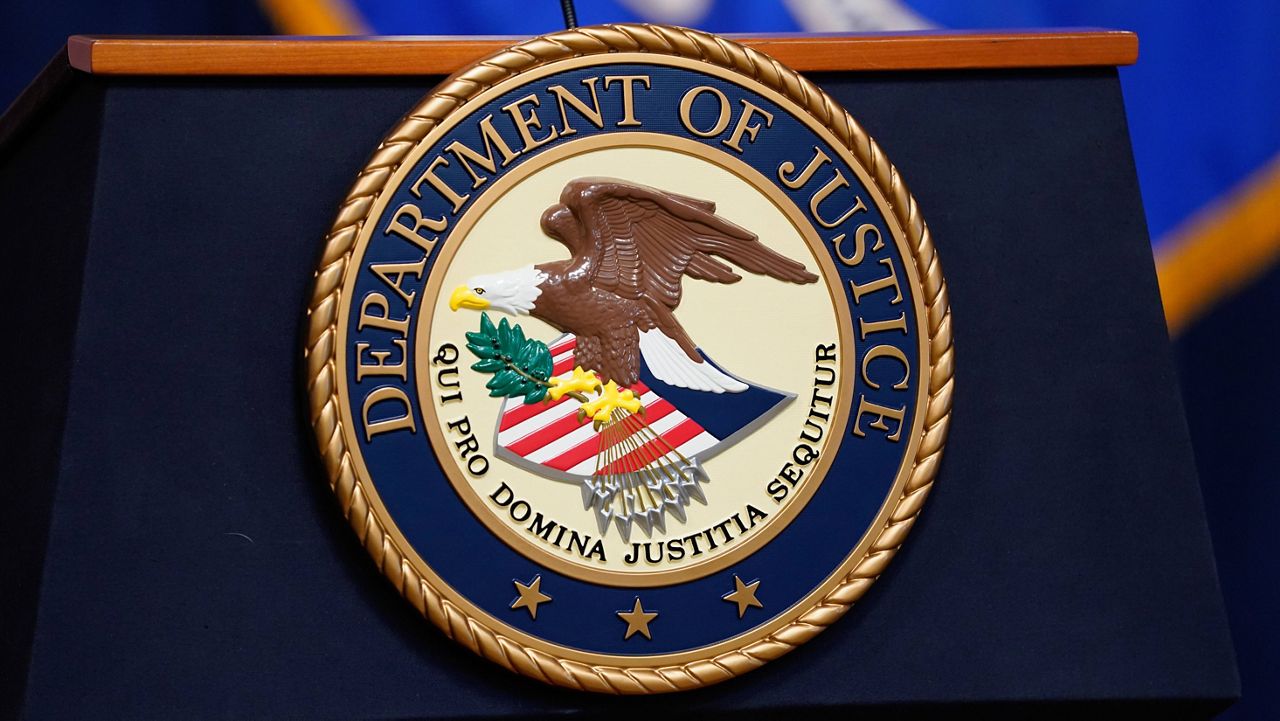A retired Army lieutenant who led a Pentagon investigation into mysterious neurological illnesses plaguing some United States diplomats and government workers is pointing the finger at Russia, contradicting the American intelligence community’s assessment that it’s “very unlikely a foreign adversary is responsible.”
Greg Edgreen, who led the Defense Department's investigation into what the government calls “anomalous health incidents,” told CBS News’ “60 Minutes” in a report that aired Sunday night he believes the U.S. is being attacked. When asked by whom, he said “Russia.”
What You Need To Know
- A retired Army lieutenant who led a Pentagon investigation into mysterious neurological illnesses plaguing some United States diplomats and government workers is pointing the finger at Russia
- Greg Edgreen's comments on "60 Minutes" contradict the American intelligence community’s assessment that it’s “very unlikely a foreign adversary is responsible.”
- Edgreen said his investigation found those with symptoms were top-performing intelligence officers who had worked on issues related to Russia
- Russian President Vladimir Putin’s press secretary, Dmitry Peskov, on Monday denied allegations that the Kremlin has been behind any attacks leading to Havana syndrome symptoms
Hundreds of cases of what has been dubbed “Havana syndrome” have been reported to the government. It was first reported in 2016 by U.S. and Canadian embassy staff in Havana, Cuba, which is how its name was derived. There have since been cases in other countries, including the U.S.
Those who have reported symptoms include White House staff, CIA officers, FBI agents, military officers and their families. Many believe they were the targets of a secret weapon firing a high-energy beam of microwaves or ultrasound. Their symptoms include headaches, dizziness, nausea and other side effects consistent with traumatic brain injuries.
Dr. David Relman, a professor of medicine at Stanford University, helped lead two government committees investigating the injuries in 2022. They concluded the most likely cause of “an injury to the auditory and vestibular system of the brain” was “pulsed electromagnetic energy.”
However, the Office of the Director of National Intelligence, said last year the symptoms “were probably the result of factors that did not involve a foreign adversary, such as preexisting conditions, conventional illnesses, and environmental factors.”
In ther interview Sunday, Edgreen said he could not discuss some aspects of his investigation because the findings are classified, but he said the illnesses were “happening to our top 5%, 10% performing officers across the Defense Intelligence Agency. And consistently there was a Russia nexus. There was some angle where they had worked against Russia, focused on Russia, and done extremely well.”
“You know, if my mother had seen what I saw, she would say, ‘It’s the Russians, stupid,’” Edgreen told CBS’ Scott Pelley.
Mark Zaid, an attorney representing more than two dozen clients suffering from symptoms of Havana syndrome, told Pelley that all his clients, except for family members of government employees, were “all doing something relating to Russia.”
One of Zaid’s clients is an FBI agent “60 Minutes” interviewed named Carrie. The news program did not report her last name and dressed her in disguise because she still works in counterintelligence.
Carrie spent 80 hours interviewing a man, Vitalii Kovalev, who was arrested after leading police on a high-speed chase near Key West, Florida, in 2020, according to the report. Among the items Kovalev had when he was finally caught was a device that can erase a car’s computer data, including its GPS record, and a Russian passport, CBS News reported.
Christo Grozev, an investigative journalist for The Insider, a magazine by Russian exiles that partnered with “60 Minutes” on the report, said Kovalev attended a Russian military institute and “studied radio electronics with a particular focus on use, within the military, of micro-electronics” before he suddenly moved to the U.S. to become a chef.
Carrie said she was standing by a window in the laundry room of her Florida home in 2021 when she was struck by a debilitating force.
“And, bam, inside my right ear, it was like a dentist drilling on steroids,” she described. “That feeling when it gets too close to your eardrum. It’s like that times 10. It was like a high-pitched, metallic drilling noise, and it knocked me forward at, like, a 45-degree angle this way.”
At the same time, the battery in Carrie’s cellphone began to swell until it broke the case, she said.
After the incident, Carrie said she “felt like I had early Alzheimer’s.”
“Short-term memory, long-term memory, confusing memories, multitasking — my baseline changed,” she said. “I was not the same person.”
Russian President Vladimir Putin’s press secretary, Dmitry Peskov, on Monday denied allegations that the Kremlin has been behind any attacks leading to Havana syndrome symptoms.
“All this is nothing more than a baseless accusation, an unfounded accusation by the media,” Peskov said.
Edgreen said he had the Pentagon’s support during his investigation, but that the Trump and Biden administrations set a bar for evidence that was impossible to meet.
“I think it was set so high because we did not, as a country, and a government, want to face some very hard truths: Can we secure America? Are these massive counterintelligence failures? Can we protect American soil and our people on American soil? Are we being attacked? And if we’re being attacked, is that an act of war?” Edgreen said.
Zaid said he does not believe the U.S. intelligence report tells “the entire story.”
“There is, in my view, without a doubt, evidence of a cover-up,” said Zaid, who said he has had access to some classified informationon AHIs. “Now, some of that cover-up is not necessarily that, ‘Oh, we found a weapon, and we don’t want anybody to know about it.’ What I’ve seen more so is we see lines of inquiry that would take us potentially to answers we don’t want to have to deal with, so we’re not going to explore any of those avenues.”
“60 Minutes” also reported that a senior Defense Department official was struck by symptoms and sought medical treatment last year while in Lithuania for a NATO submit focusing largely on Russia’s invasion of Ukraine.
The Pentagon confirmed the report Monday. The official has not been identified.
Edgreen said of the incident: “It tells me that there are no barriers on what Moscow will do, on who they will attack, and that if we don't face this head0on, the problem is going to get worse.”
In a statement to “60 Minutes,” the Office of the Director of National Intelligence said it continues to “closely examine anomalous health incidents,” but reiterated it’s unlikely foreign adversaries are responsible.
“As part of its review, the IC [intelligence community] identified critical assumptions surrounding the initial AHIs reported in Cuba from 2016 to 2018, which framed the IC’s understanding of this phenomenon, but were not borne out by subsequent medical and technical analysis,” the ODNI said. “In light of this and the evidence that points away from a foreign adversary.”
The White House said it “continues to emphasize the importance of prioritizing efforts to comprehensively examine the effects and potential causes of AHIs.”
And the FBI said is working with the intelligence community “to determine how we can best protect our personnel.”
Last month, the National Institutes of Health’s nearly five-year study found no brain injuries or degeneration among U.S. diplomats and other government employees who suffered anomalous health incidents, contradicting Relman's earlier research. The NIH study offered no explanation for symptoms.








